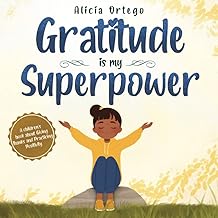Summary of "The Science of Gratitude & How to Build a Gratitude Practice | Huberman Lab Essentials"
Key Wellness Strategies, Self-Care Techniques, and Productivity Tips from
“The Science of Gratitude & How to Build a [Gratitude Practice](https://www.amazon.com/dp/163586206X?tag=dtdgstoreid08-20) | Huberman Lab Essentials”
[[Gratitude Practice](https://www.amazon.com/dp/163586206X?tag=dtdgstoreid08-20)](https://www.amazon.com/dp/1647397197?tag=dtdgstoreid08-20) Benefits
- Enhances mental and physical health.
- Increases subjective well-being, including happiness, meaning, joy, and awe.
- Builds resilience to past and future trauma.
- Improves social relationships broadly (work, family, romantic, self).
- Shifts neural circuits toward pro-social behaviors and away from defensive/fear circuits.
- Reduces inflammation markers such as TNF alpha and IL6, and decreases amygdala activity linked to threat detection.
- Enhances motivation and reduces anxiety.
Neuroscience of Gratitude
- Gratitude activates pro-social neural circuits involving serotonin release.
- Key brain areas involved:
- Anterior cingulate cortex
- Medial prefrontal cortex (mPFC)
- The mPFC sets the context of experiences, influencing whether an experience is perceived positively or negatively.
- Genuine motivation and wholehearted intention are crucial; forced or fake gratitude is ineffective or harmful.
Effective [[Gratitude Practice](https://www.amazon.com/dp/163586206X?tag=dtdgstoreid08-20)](https://www.amazon.com/dp/1647397197?tag=dtdgstoreid08-20) Methodology
Receiving Gratitude is More Potent than Giving It
- Studies show that receiving gratitude (e.g., hearing a letter of thanks) activates the prefrontal cortex more strongly than expressing gratitude.
Use Narrative/Storytelling
- Engage with powerful stories about others receiving help or gratitude.
- Stories should evoke genuine emotional connection and highlight the human spirit and helping behaviors.
- Stories can be consumed via movies, podcasts, books, or personal memories.
Build a Personalized Gratitude Story
- Choose a meaningful story (your own or someone else’s) involving genuine thanks received.
- Write 3–4 bullet points summarizing the story:
- The state before receiving gratitude.
- The state after receiving gratitude.
- Emotional highlights of the story.
- Use these bullet points as cues during practice.
Practice Duration and Frequency
- Short sessions (1–3 minutes) are effective.
- Repeated practice over time leads to lasting neural and physiological changes.
Authenticity is Key
- The gratitude must be genuine; fake or reluctant gratitude undermines benefits.
- When giving gratitude, do so wholeheartedly to maximize impact.
Physiological Effects of [[Gratitude Practice](https://www.amazon.com/dp/163586206X?tag=dtdgstoreid08-20)](https://www.amazon.com/dp/1647397197?tag=dtdgstoreid08-20)
- Changes in brain-heart coupling and functional connectivity.
- Decreased activation of fear/anxiety circuits.
- Increased activation of motivation and positive emotion circuits.
- Rapid reduction in inflammatory markers after practice.
Practical Tips for Implementation
- Instead of traditional gratitude lists, focus on receiving gratitude or imagining receiving it.
- Incorporate gratitude stories into daily or weekly routines.
- Reflect deeply on the feelings and context of receiving thanks.
- Use the same story repeatedly to condition your nervous system.
- Combine [[gratitude practice](https://www.amazon.com/dp/163586206X?tag=dtdgstoreid08-20)](https://www.amazon.com/dp/1647397197?tag=dtdgstoreid08-20) with awareness of bodily changes (heart rate, breathing).
Presenters / Sources
- Andrew Huberman, Professor of Neurobiology and Ophthalmology, Stanford School of Medicine
- Studies and research cited include works on neuroimaging, inflammation, and gratitude meditation, such as:
- Antonio Damasio’s research
- Brain Behavior and Immunity (2021) study
- Nature Scientific Reports
Category
Wellness and Self-Improvement
Share this summary
Featured Products

The 5-Minute Gratitude Journal: Give Thanks, Practice Positivity, Find Joy

The 5-Minute Gratitude Journal: Give Thanks, Practice Positivity, Find Joy

The Gratitude Explorer Workbook: Guided Practices, Meditations, and Reflections for Cultivating Gratefulness in Daily Life

The Neuroscience Of Gratitude: Why Self Help Has It All Wrong: Rewire Your Brain With A Science Backed Gratitude Practice In 5 Minutes A Day And ... And Happiness (NeuroMastery Lab Collection)

Gratitude is My Superpower: A children’s book about Giving Thanks and Practicing Positivity (My Superpower Books)